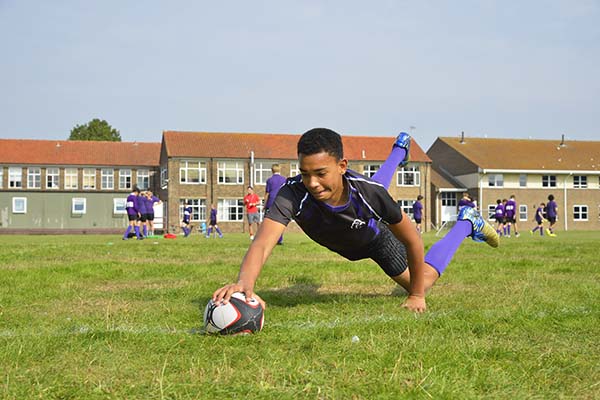
Our curriculum promotes inclusion, equality
and diversity through a broad, balanced and varied curriculum that is
progressive across all key stages.
Students learn skills and understanding by
participating in competitive experiences, purposeful skills-based practices and
fitness-based activities. Students also develop physical confidence, build on
their health, fitness and well-being and develop character values.
The curriculum also promotes the academic aspect of PE through differentiated pathways preparing them for future opportunities.
Students' learning across Key Stage 3 encompasses the following areas:
• Range of tactics and strategies to overcome opponents in direct competition through team and individual games. (Games activities)
• Develop techniques and improve performance in other competitive sports (athletics and gymnastics)
• Perform dances using techniques within a range of dance forms.
• Develop personal fitness
• Take part in competitive sports
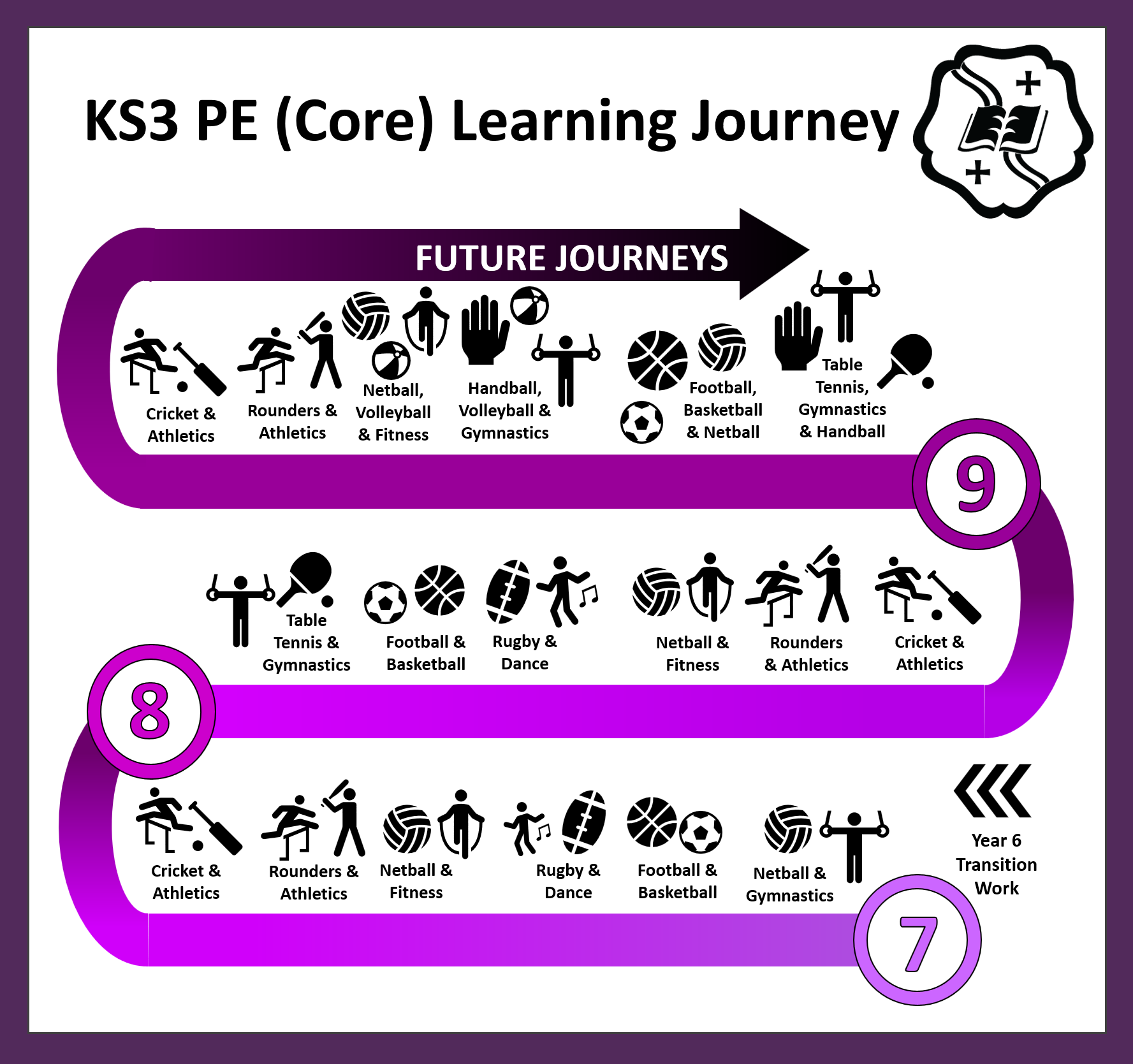
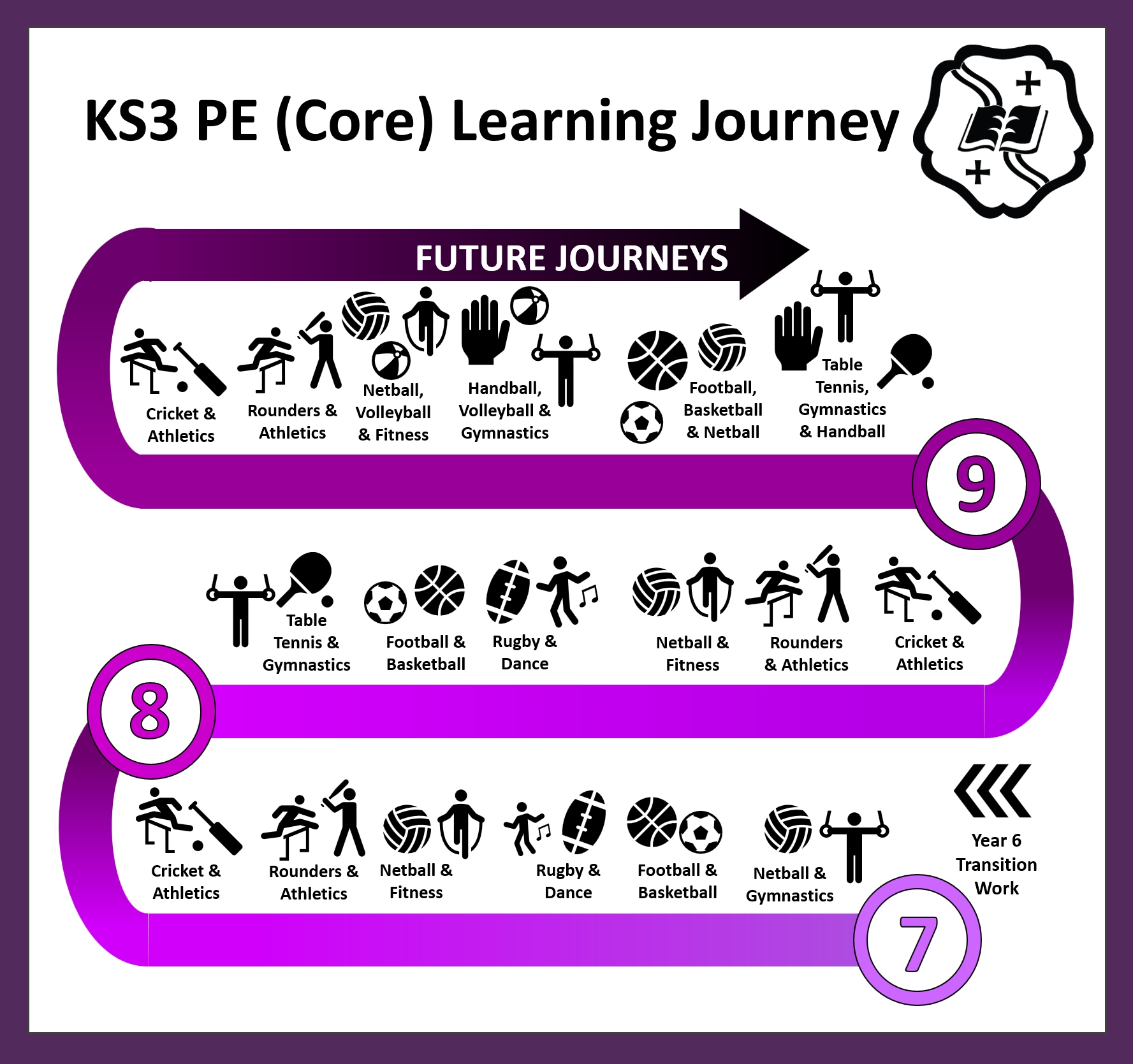
GCSE Physical Education equips students with the knowledge, understanding and skills to develop their own performance in sport. They develop their understanding of socio-cultural influences on participation in sport, and the benefits of physical activity to health, fitness and well-being.
Exam Board: OCR
Qualification Title: Physical Education
Qualification Specification Code: J587
Qualification Webpage: Click here to visit the OCR webpage for the specification.
GCSE PE is an interesting and challenging learning experience. In it students are introduced to key sporting ideas and shown how these interact with practical performance. They will also gain insights into the relationships they have with each other throughout the course.
Students experience the development of transferable skills including: decision making, psychological understanding of people, independent thinking, problem solving and analytical skills as well as thinking, acting and reacting under pressure.
The study of GCSE PE opens up a range of possibilities for further study and also into careers associated with the subject.
An interested in sport and physical activity is desirable.
Some understanding of how the body works is desirable.
Some knowledge of sport in society is desirable.
A good level of performance in 3 sports (2 team and 1 individual or 1 team and 2 individual) is essential.
A commitment to continued participation in sports in extra-curricular activities and outside clubs.
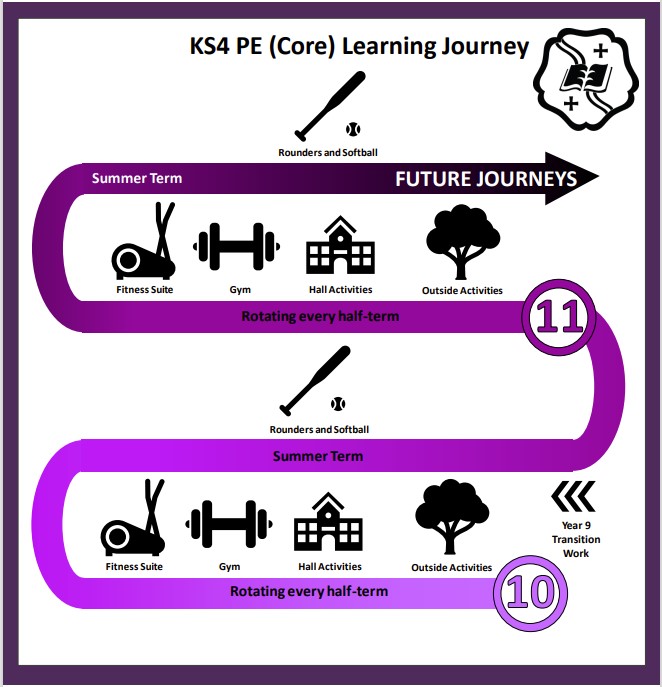
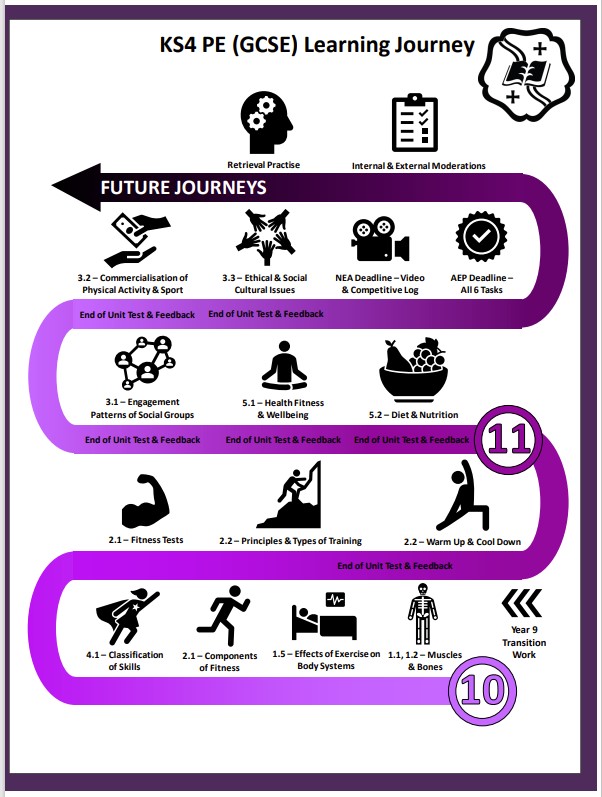
Component 01 (30% weighting) – 1 hour external examination
Component 02 (30% weighting) – 1 hour external examination
Component 03 (40% weighting) – Practical assessment of 3 sports. (2 team and 1 individual sports or 1 team and 2 individual sports)
Sports Science
Sport Psychology
Sports Management
Sport Coaching
Healthcare
Exercise and Health (eg personal trainer)
Teacher training
Sports Therapy (eg physiotherapy, Occupational health)
Armed forces
Nutrition
A Level Sports
Science and Physical Education is designed to follow on from GCSE PE, although
GCSE PE is not a requirement for students wishing to follow this course.
Students will specialise in one sport as part of the practical assessment or be
assessed coaching. It is essential that students are actively involved
participating in their sport in a club. Students will need to keep a log of
their training and competitive fixtures undertaken during Year 12 and 13. This
course will develop theoretical knowledge and understanding of factors that
underpin physical activity and sport in an academic setting. Modules include
Anatomy and Physiology, Biomechanics, Exercise Physiology, Sport and Society,
Contemporary Issues in Sport and Sports Psychology. A variety of study methods
are used on this course including Problem Solving, Debate, Discussion and
Presentations, Practical Performance and Oral Observation of Live Performances.
This course is academic in nature so practical lessons are limited to specific
activities.
Our KS5 curriculum an academic curriculum which progresses learning from Key Stage 4 which is matched to our student intake profile and is delivered through the differentiated pathways of A Level and Cambridge Technical qualifications.
Our KS5 curriculum further promotes the academic aspects PE and Sport academic and vocational studies as in KS4. Literacy is further promoted through extended writing and extended oral work, combined with the use of more challenging key subject scientific, psychological and socio-cultural terminology. Progress made is regularly identified in learning through tracking and celebrated by sharing best work and by rewarding it through the rewards policy
The KS5 curriculum inspires and engages students whilst also equipping them with cultural capital successfully broadening horizons and preparing them for progression at 18, and for their future life as learners, employees and informed citizens in the field of sport, recreation and health.
Through KS2 primary links students participate in events that develop their planning, organisation and leadership skills.
Opportunities are available for students to develop into future leaders through subject ambassador roles and further promoting their subject as well as coaching and officiating younger students in extra-curricular activities.
Enrichment opportunities allow participation in a range of health, fitness and competitive activities, which help to support living a sustained active health lifestyle and to develop new interests which may be undertaken in future life.
Exam Board: OCR
Qualification Title: Physical Education
Qualification Specification Code: H555
Qualification Webpage: Click here to visit the OCR webpage for the specification.
Standard Sixth Form entry requirements
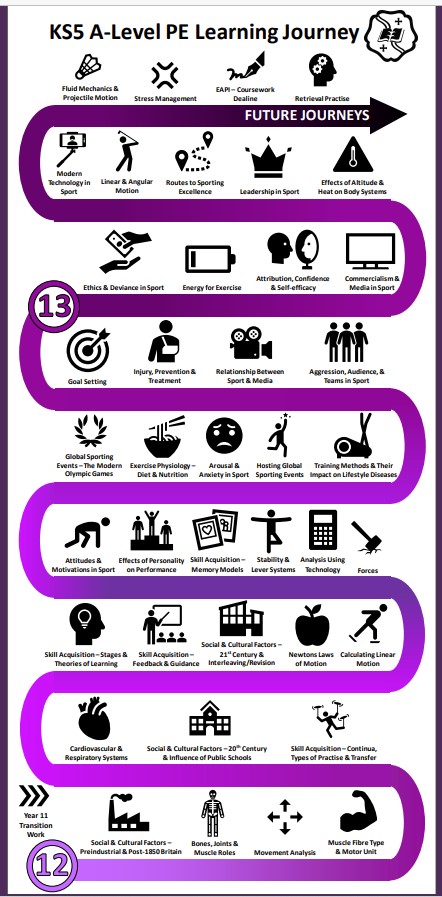
Sports related
degrees, Sports Science, Coaching, Teaching, Physiotherapy, Sports Statistics,
Sports Psychologist, Recreational Management, Sport and Leisure Industry and
many more. Learners will also develop the transferable skills that are in
demand by Further Education, Higher Education and employers in all sectors of
industry. This specification will create confident, independent thinkers and
effective decision makers who can operate effectively as individuals or as part
of a team – all skills that will enable them to stand out and effectively
promote themselves as they progress through life.
Mrs Webber or Mr Hallam

Owned by: MDS | Last Published: 20/09/2019 09:53:36 | Next Update: N/A